Hi @devanshj - I'm still trying to dive into this, I have a couple of questions if you don't mind:
1 - You left pretty much all the types intact in index.tsx - but I'm assuming these aren't needed anymore?
2 - You have some helper types (great stuff, BTW) under the namespaces O, L, F and A. Why are they under so many namespaces?
3 - I'll be honest with you - I really want to use this, but I don't feel like I can contribute right now to your project. So, my question is - can you keep helping with changes until we push version 1.0? Here are the expected changes:
- New event system with payload (Already merged)
- Top-level events/transitions (#41)
- New effects parameter signature with access to context (#33)
- Nested/hierarchical states (#21)
If you can and are interested we can coordinate changes on how to change the implementation and types for these changes, and by then I think I'll be more prepared to make changes into
txstatedirectly.
Superseded by #56
Todos
on_bug - right now we need to add_: nullis a state node only has a effect, I think the problem is at TS's end though will have to find a workaround. - update: made iton: null~still haven't investigated yet to see if we can fix it completely~ we can't fix it, so pending is to add a custom error to tell user to addon: nullexpectCompletionsToBe,expectQueryTextToIncludeie automated testing with language servertype _Effect<D, P> = Effect<X, Y, X>, etc~ nope, doesn't make intellisense queries more readablestateOriginal Description
Hi Cassio! Here's a little rough PR for porting txstate for better types.
Improvements
Way better error messages
Scenario 1
Before - 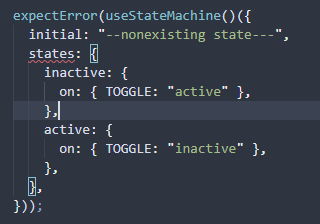 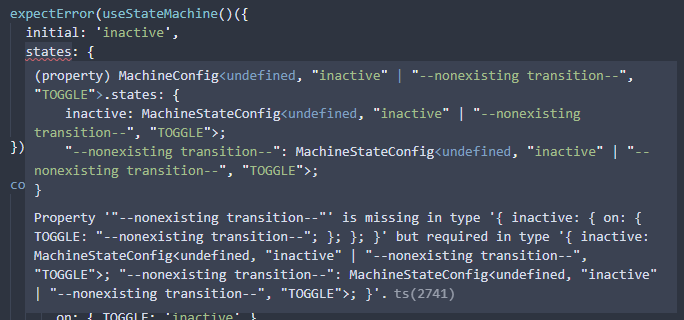 After - 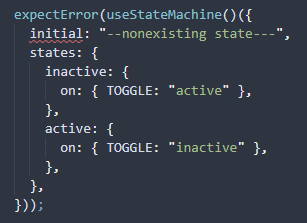 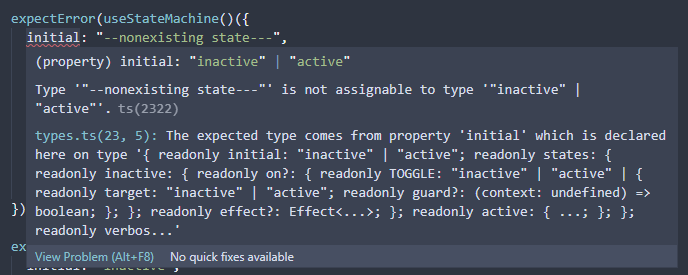
Scenario 2
Before - 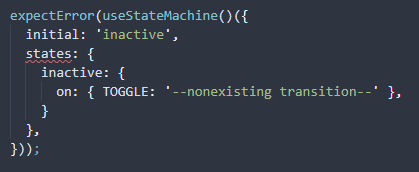 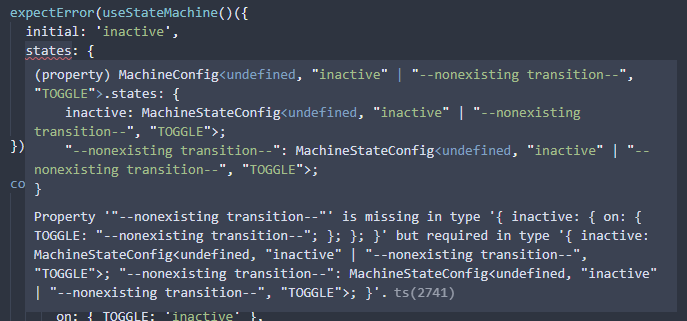 After - 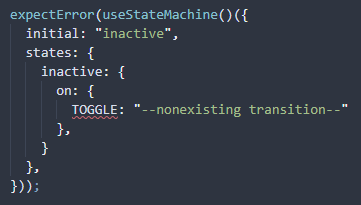 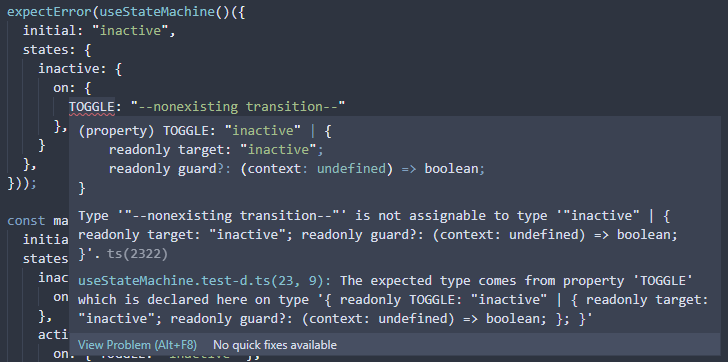
And many more scenarios that I don't have handy...
Typed guards hence inferring context typestates
Example
```ts // example picked from xstate docs let [flightMachine] = useStateMachineOther notes